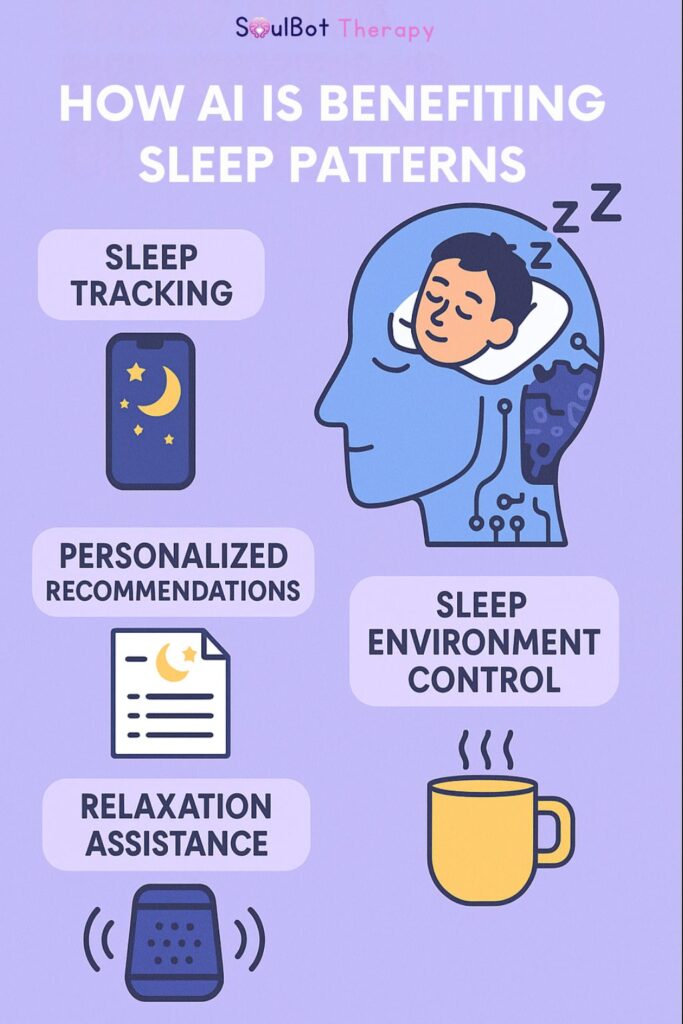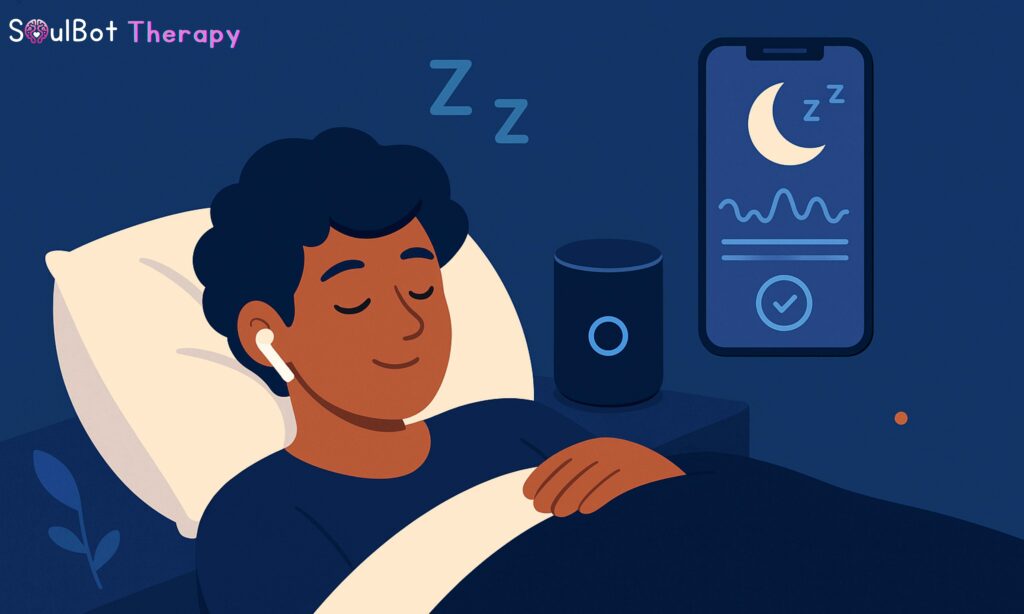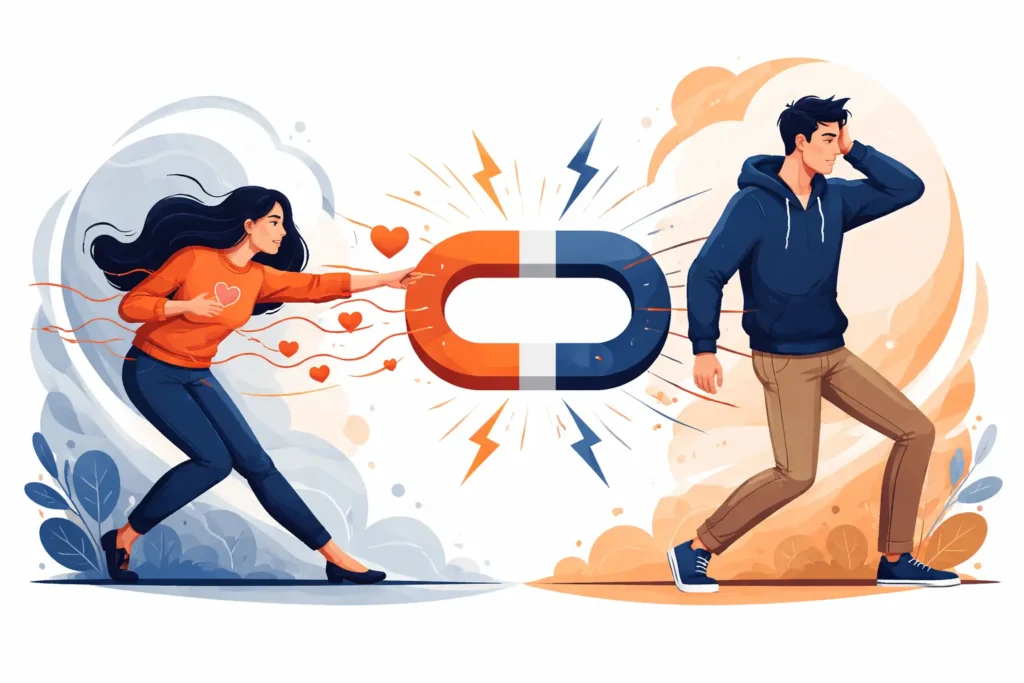Sleep isn’t just downtime; it’s the foundation of mental health, focus, and resilience. Yet, millions struggle with insomnia, restless nights, or inconsistent sleep cycles. Enter AI sleep coaching, an emerging solution that blends respite science, machine learning, and real-time tracking to help you reclaim restorative rest. But the big question is: Can AI replace traditional sleep therapy? Or is it just another wellness gimmick?
What Is AI Sleep Coaching?
Sleep coaching AI is a digital approach that uses algorithms, wearable data, and personalized feedback to improve your bedtime. Instead of visiting a therapist or doctor, users rely on apps or AI platforms that analyze:
- Sleep stages (light, deep, REM)
- Heart rate variability
- Stress levels before bed
- Lifestyle patterns like caffeine, diet, and screen time
The AI then recommends tailored strategies such as optimal bedtime routines, relaxation techniques, or even micro-adjustments in your daily habits.
👉 Soul Fact: A structured digital sleep program improved sleep efficiency by 20% in participants struggling with insomnia, proving AI-based tools can enhance rest quality.
Benefits of AI Sleep Coaching
- 24/7 Support: Unlike human sleep coaches, AI platforms are always accessible, providing real-time feedback.
- Personalized Recommendations: AI combines sleep data with your unique habits, making the advice more specific than generic tips.
- Integration with BedtimeApps & Wearables: Most AI apps sync with wearables like Fitbit, Oura Ring, or Apple Watch, offering continuous insights.
- Cost-Effective: Traditional sleep coaching can be expensive. AI tools often come at a fraction of the price or are even free in some apps.
- Mental Health Link: Better sleep improves mood, reduces anxiety, and strengthens resilience. The sleep AI coaching contributes to overall mental health coping skills.

Limitations of AI Sleep Coaching
- Lacks Human Empathy: AI can track and recommend, but can’t provide the emotional support a therapist offers.
- Data Privacy Concerns: Sensitive sleep and health data may be shared with third-party platforms.
- Not for Clinical Sleep Disorders: Conditions like sleep apnea or chronic insomnia still need medical diagnosis and treatment.
AI Sleep Coaching vs Traditional Sleep Therapy
| Aspect | AI Sleep Coaching | Traditional Sleep Coaching/Therapy |
|---|---|---|
| Accessibility | 24/7, app-based | Scheduled sessions only |
| Cost | Affordable/free | High cost per session |
| Personalization | Data-driven, habit-based | Human-driven, emotional insights |
| Accuracy | Relies on algorithms & wearable data | Relies on therapist expertise |
| Suitability | Great for lifestyle-related sleep issues | Best for chronic/clinical sleep disorders |
Is AI Sleep Coaching Effective?
Studies show AI-driven systems can improve sleep quality by analyzing behavioral patterns and delivering structured interventions. For example, research from the Journal of Sleep Research found that digital sleep tools improved sleep efficiency in participants by up to 20%. Another study highlights how wearables combined with AI can detect early signs of insomnia and provide preventive recommendations.
Still, experts recommend using AI to complement, not replace, human sleep therapy.
👉 Soul Fact: AI combined with wearable data can detect early signs of insomnia and provide timely recommendations, making it a game-changer for preventive sleep health says National Institute of Health
Tips to Maximize Sleep Coaching
- Pair AI tools with mindfulness or meditation practices.
- Track your lifestyle inputs honestly (caffeine, alcohol, phone use).
- Use AI as a guide, but consult professionals if sleep struggles persist.
Conclusion
AI sleep coaching is more than a passing wellness trend. It offers affordable, personalized, and data-driven support for anyone seeking better rest. While it may not replace human empathy or medical expertise, it can be a powerful partner in building healthier sleep habits.
If restless nights are weighing you down, experimenting with an AI sleep coach could be the first step to waking up refreshed and emotionally resilient.
👉 Feeling restless or overwhelmed? Chat with SoulBot, your 24/7 AI mental health guide.Related SoulBot Reads
- Sound Healing: Benefits of Music for Anxiety
- Reclaiming Calm: What to Do After a Panic Attack
- How to Overcome Rejection in Love & heal Yourself?
- What are the Signs of a Dysfunctional Family? (And How to Heal)








